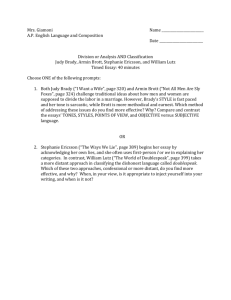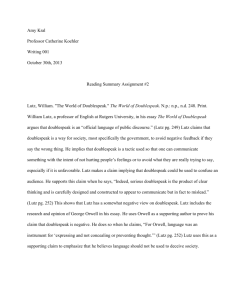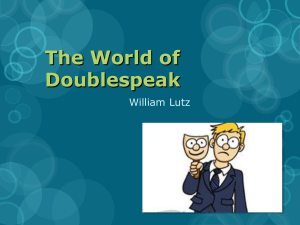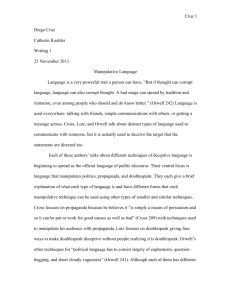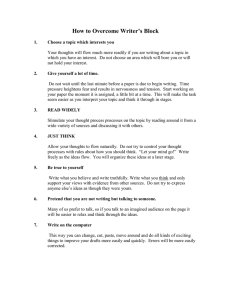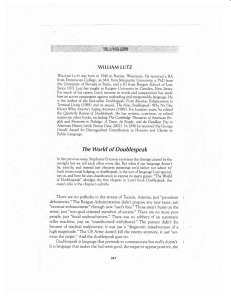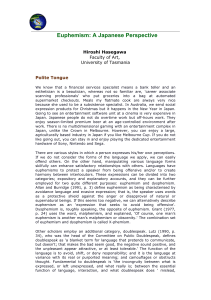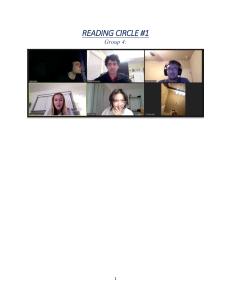Document 15690617
advertisement
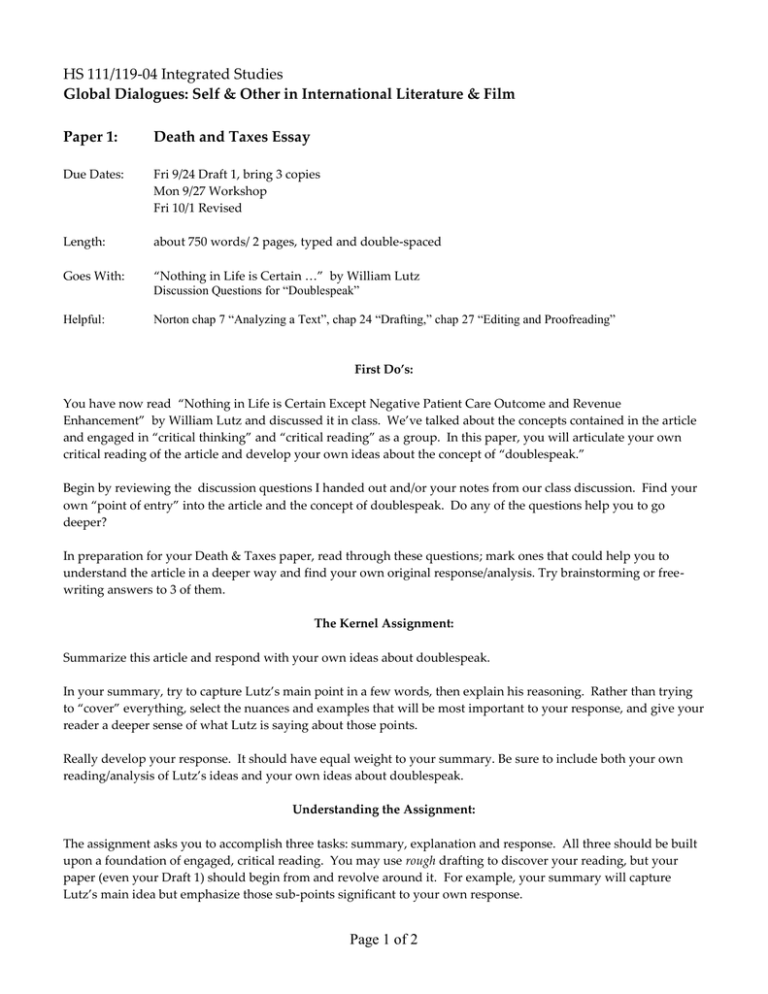
HS 111/119-04 Integrated Studies Global Dialogues: Self & Other in International Literature & Film Paper 1: Death and Taxes Essay Due Dates: Fri 9/24 Draft 1, bring 3 copies Mon 9/27 Workshop Fri 10/1 Revised Length: about 750 words/ 2 pages, typed and double-spaced Goes With: “Nothing in Life is Certain …” by William Lutz Discussion Questions for “Doublespeak” Helpful: Norton chap 7 “Analyzing a Text”, chap 24 “Drafting,” chap 27 “Editing and Proofreading” First Do’s: You have now read “Nothing in Life is Certain Except Negative Patient Care Outcome and Revenue Enhancement” by William Lutz and discussed it in class. We’ve talked about the concepts contained in the article and engaged in “critical thinking” and “critical reading” as a group. In this paper, you will articulate your own critical reading of the article and develop your own ideas about the concept of “doublespeak.” Begin by reviewing the discussion questions I handed out and/or your notes from our class discussion. Find your own “point of entry” into the article and the concept of doublespeak. Do any of the questions help you to go deeper? In preparation for your Death & Taxes paper, read through these questions; mark ones that could help you to understand the article in a deeper way and find your own original response/analysis. Try brainstorming or freewriting answers to 3 of them. The Kernel Assignment: Summarize this article and respond with your own ideas about doublespeak. In your summary, try to capture Lutz’s main point in a few words, then explain his reasoning. Rather than trying to “cover” everything, select the nuances and examples that will be most important to your response, and give your reader a deeper sense of what Lutz is saying about those points. Really develop your response. It should have equal weight to your summary. Be sure to include both your own reading/analysis of Lutz’s ideas and your own ideas about doublespeak. Understanding the Assignment: The assignment asks you to accomplish three tasks: summary, explanation and response. All three should be built upon a foundation of engaged, critical reading. You may use rough drafting to discover your reading, but your paper (even your Draft 1) should begin from and revolve around it. For example, your summary will capture Lutz’s main idea but emphasize those sub-points significant to your own response. Page 1 of 2 The assignment does not specify a particular form, style or level of formality. Thus it is up to you to choose these things. For example, it could look and sound like an academic essay, a magazine article, or a letter to (Lutz or the editor). Similarly, it asks you to accomplish a set of tasks, but it does not require a specific set of parts. You might, for example, summarize then respond or weave summary and response together throughout your essay. What is a “Draft”? This word can mean many things, so I will clarify. For this class, the Drafts you turn in should not be what we usually call rough drafts or “drafts of discovery.” Nor should they be missing essential parts or say “to be continued.” Though I strongly encourage you to do rough drafting, all the required drafts you turn in should be whole and complete versions of your paper, the best you can accomplish on your own. This way, my comments can help you grow as a writer. Drafts should be thoroughly proofread and edited. Format Please use this standard formatting system for this and future papers in this class. It will also meet most of your other professors’ expectations for college papers. Your Name Course number and title Professor’s Name Name of Assignment and Version (Death & Taxes Paper Draft) Date you turn it in (thus Draft date will differ from final) Your Essay’s Title, Capitalize First Letters Indent the first line of each paragraph. Double space (except for heading). Papers absolutely must be typed and stapled. Your papers do not need a title page. Usually, title pages are used only with papers of ten pages or more. Just one double-space between paragraphs please. Writing Permission Form Just for this paper, please fill out the Integrated Studies Writing Permission Form, which I will hand out and collect in class. This is so that we can use sample papers or bits of papers in our IS faculty planning session. Participation is voluntary. All names will be blacked out and the authorship kept confidential. Page 2 of 2
